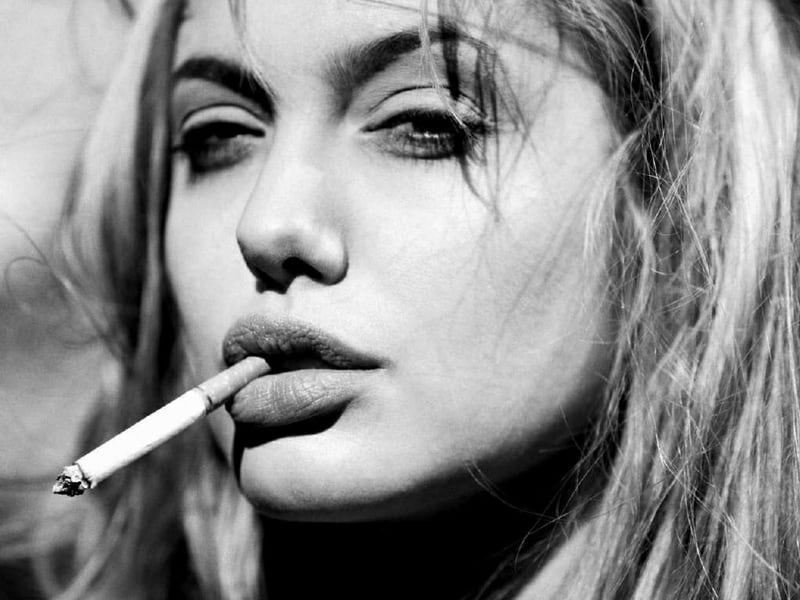Emotional women write about the harsh, messy things. They understand that sharing private dialogue is the truest form of writing. It reveals the unflattering side of storytelling. It runs the risk of being politically incorrect or insensitive, while being self-deprecating and cruel at the same time.
These writers are the bodily fluids we wash away to sanitize any trace of regret from our memory. Like the relationships better left in the trash, the uncomfortable experiences we black out, or the desperation for attention that ended in a car crash of emotional abuse and unwanted codependence. Emotional women don’t hide behind a top-coat of humour or formulaic punch-lines. They slice open womanhood with a switchblade while smoking a cigarette inside the surgery room. They’re not pretending to be put together, satisfied or content. They are naked a vulnerable, like a porn star who doesn’t give a fuck. The female writers I idolize are fucked up, irrational, sex-crazed, boastfully emotional, always depressed, anxious or in a state of eternal “blueness.”
And I want that.
I want to be hopeless, heroic, upset and unfiltered in my writing – a beautiful basket case, intelligent with smudged makeup and a dark secret. I purposely mimic the writing style of these brave literary disasters, paraphrasing poets, historical facts or feminists, to add gravity to the context of my very average, twenty-something existence. I fear that if I write about controversial topics, I’ll be reprimanded as naïve. That’s why I love emotional women. They can talk about rape, sexual abuse, class divides, race, humiliation, abortion and aloneness with ease; as if they are chatting over brunch about a destination wedding or the season finale of Desperate Housewives.
Emotional women piss people off and stir the pot, only to rattle opposing viewpoints. As politically correct or aware as any woman can strive to be, not everyone will agree with her. But emotional women are not afraid to defend their opinions, and that requires a backbone. It’s this genre of confessional expression that I can read, with uncensored delight, about politically-charged female issues, toleration or dysfunctional relationships that hurt, sting and scar. I rely on them to read between the lines of hot yoga, cold-pressed juice and fashion trends that blend into my daily routines. There’s more to it than being a woman. I know it.
The emotional writer magnifies the female body; its limitations and extraordinariness – pain, discomfort and restlessness come with the narrative of being unfixable, but desirable. The obsession with the body stems from every woman’s curiosity with tits, vaginas and holes in general. She is a writer of physical examination, pointing to clusters of dark red clouds, swirls of anger and sadcore revelations in the spectrum of the female body. I never truly understood depression, loss, anxiety or death, because I had never experienced it. I needed to read about loathing, jealousy, restless boredom and self-destruction before I could feel it for myself. I’ve learned about it through the words of these women.
From Sylvia Plath, to Joan Didion to Sarah Nicole Prickett or Chris Kraus, these women have become the staples of feminist literature. It’s a genre recognized by dissatisfied feminist boredom. Their writing is gossipy, angry and insightful. It feeds the types of secrets, feelings and memories we try to move on from, forgotten in a diary thrown beside a pile of last season’s Elle or Beast Health magazines. Characters, fiction or non-fiction, are strikingly familiar to the boyfriends and girlfriends we fuck and call friends. I feel like I know the characters they’re writing about, and I applaud how mean they are. It’s a thoughtful observation, realistic and raw, versus forced, generic and pleasing. I need that.
I write in two voices: naïve twenty-something and sadcore woman; nothing between. Beyond bed-ridden depression, mainstream anxiety and disparities that some of us relish in more intensely, emotional writing parallels my light-hearted comedic style writing. Both address cultural observations and arguments about life, love and awkwardness, but the emotional narrative will always carry a stronger weight than the funnier one will. I’m not hiding behind humour, but it’s important to recognize the gravity of the emotional woman who’s willing to write about the terrible, beautiful and profound parts of being female. We’re not always happy, excited or thrilled about things. And no matter what background, income, family or experiences that comprise our emotional lives, feelings of depression, anxiety and rejection are carried with us everywhere. At least the emotional woman is fearless enough to talk about it without an exclamation mark, sarcasm or joke.
And while I may not be unhappy, angry or blue at this given moment, I can admire the reckless, impulsive and stupid feelings of the emotional woman in a way I can’t explain.
We need emotional women in our lives, all of us, to share the dark side of womanhood.



 Follow Us On Instagram
Follow Us On Instagram
